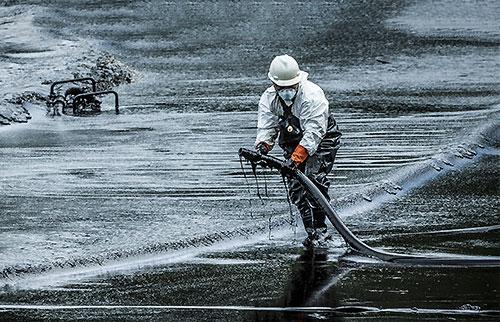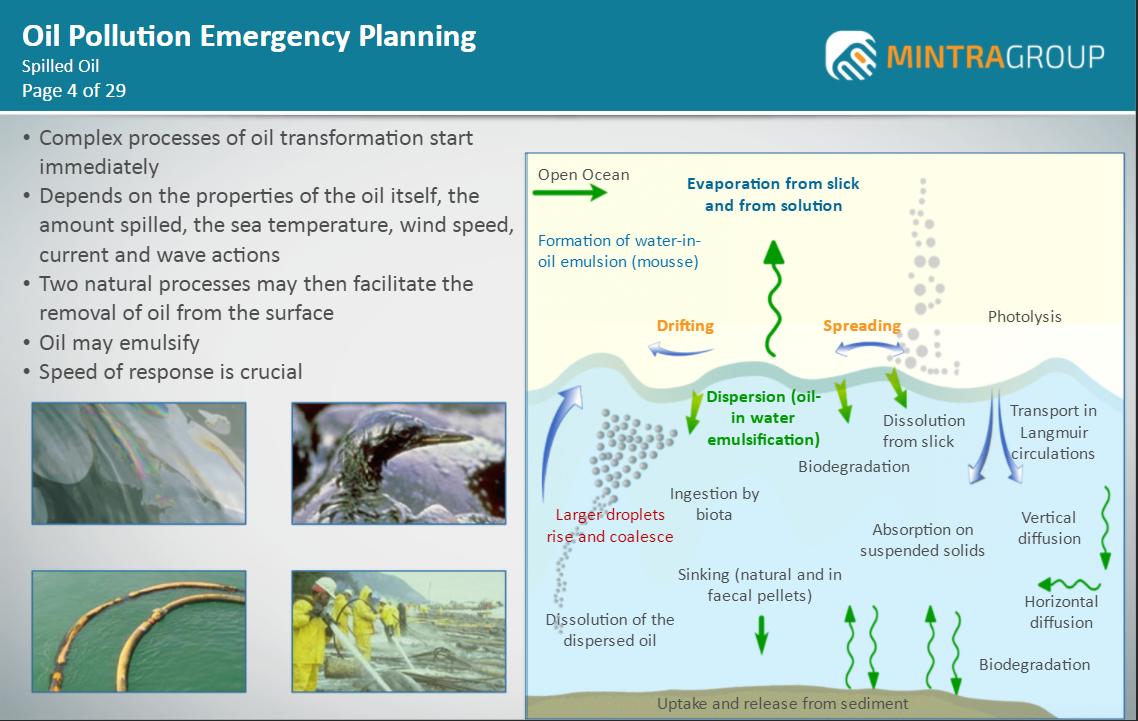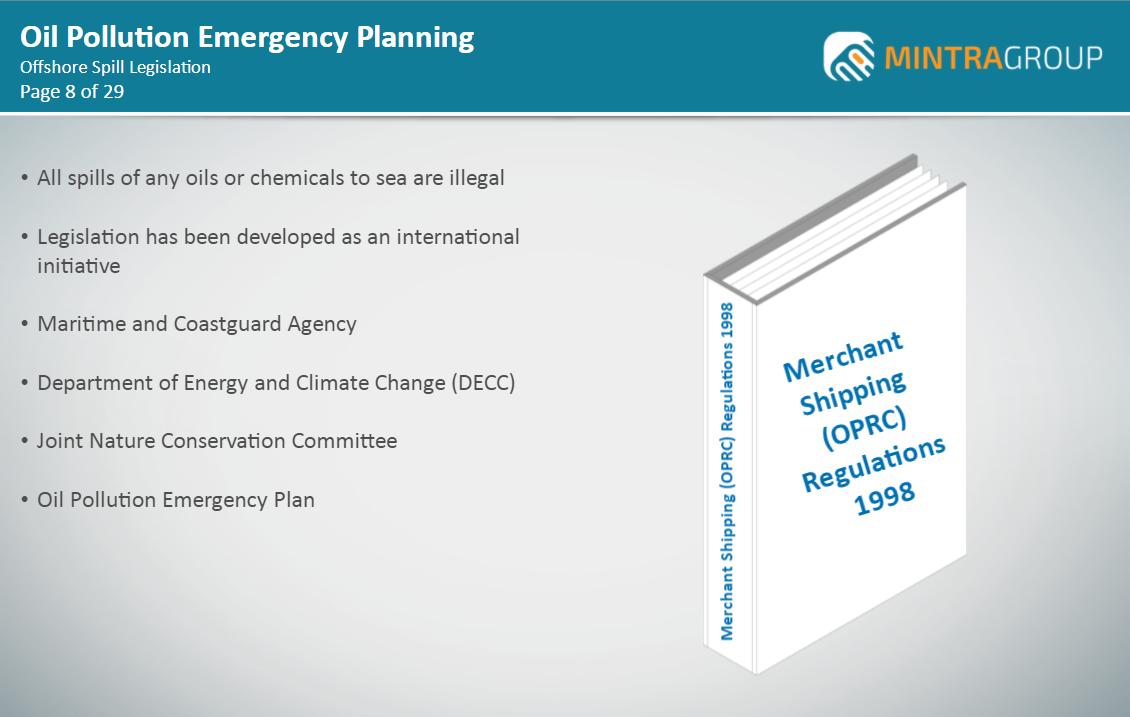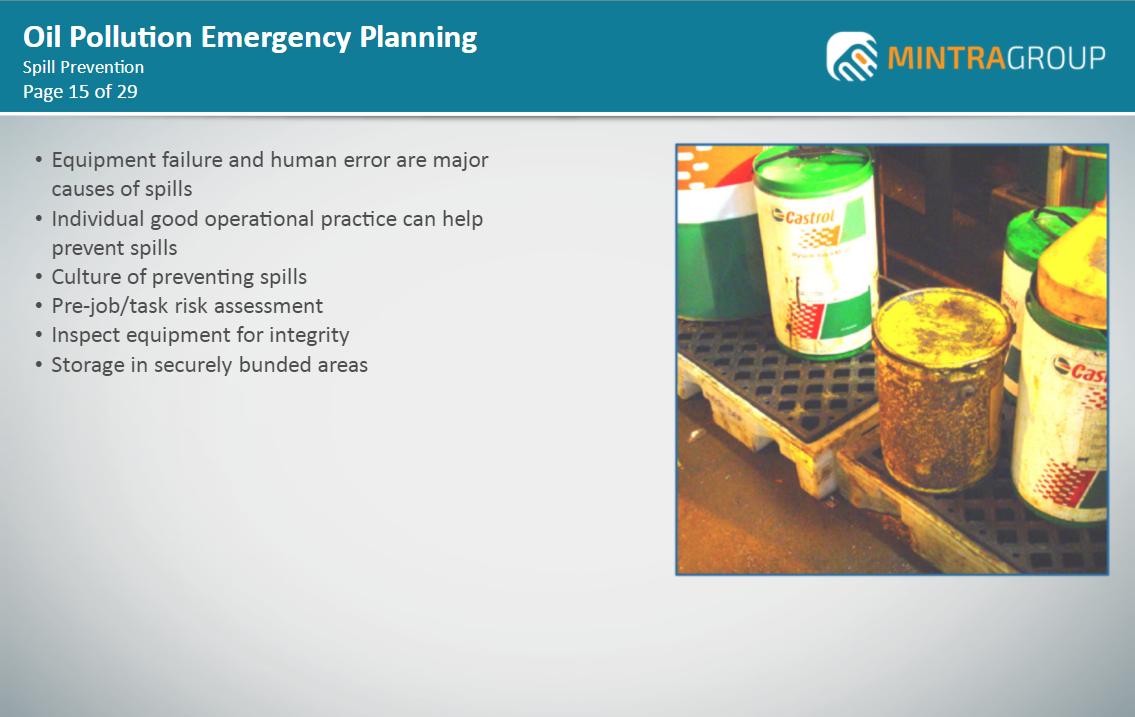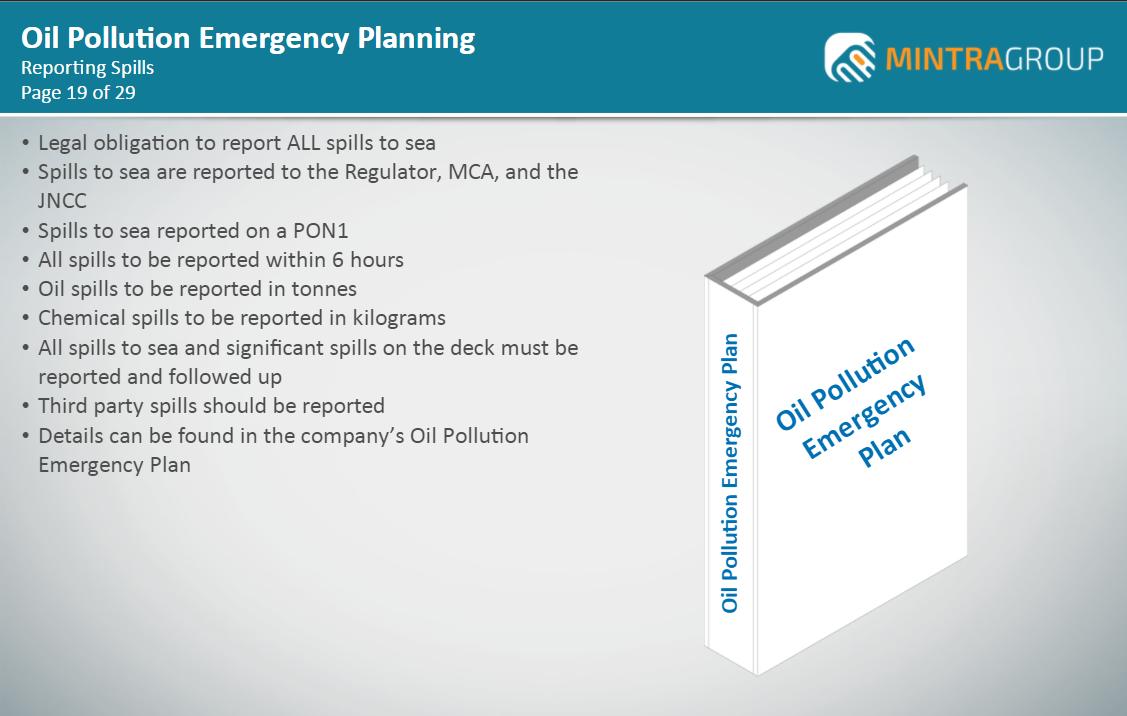Buy and assign to
multiple learners
Instant access
via email link
Instant certificate
via email
Further Information - Oil Pollution Emergency Planning Training
Description
Who is the course for?
This Oil Pollution Emergency Planning Training course is aimed at individuals working in the UK offshore oil and gas industry who require an overview of planning for oil spill emergencies.
Is previous experience required?
You do not need prior knowledge or experience to complete this course.
How will the course benefit me?
Large spills of oil to sea are unlikely to happen but can have devastating consequences for the environment if they do. This course will give you a basic understanding of how oil spills to sea can occur and what can be done in the unlikely event that they do.
The knowledge gained in this course will help you to participate in emergency planning and response drills. The course also provides an overview of the applicable legislation and reporting requirements for spills to sea.
How will the course benefit my company?
Year on year the offshore sector has managed to reduce the volume of spills entering the sea. By ensuring you are fully aware of the emergency plans at your installation, you will respond quickly and correctly in the event of a spill to help protect the environment. You will also help your company to comply with relevant legislation and regulations.
What standards are referenced in the course?
This course is written to current HSE guidelines and industry best practice and references the following UK legislation:
• The Merchant Shipping (Oil Pollution Preparedness, Response and Cooperation Convention) (OPRC) Regulations 1998
• The Offshore Installations (Emergency Pollution Control) Regulations 2002
• The Offshore Chemicals Regulations (OCR) 2002
• The Oil Pollution Prevention and Control Regulations (OPPC) 2005
Is there an assessment?
Once you have completed the course, you will be asked a series of questions to check your knowledge and understanding. These are based on the learning objectives for the course and have a pass mark of 80%.
Learning Objectives
• Identify what can happen if oil or chemicals are spilled and the potential impact they can have on the environment
• Identify the legislative controls and regime relating to oil and chemical spills
• Identify operational areas where spills can occur
• Explain what actions can be taken to avoid spills
• Explain the function of oil spill emergency planning
• Identify the actions to be taken and the reporting requirements in the event of a spill
• Identify the company’s spill procedures and emergency plans
Assessment
End of course exam with an 80% pass mark.
System Requirements
• Internet access - users will need a device with a web browser and internet connection
• System - runs on computers, tablets and mobile devices using Windows 7 and above and MAC OS devices running IOS 11 and above
• Browsers - Edge, Chrome, Firefox and Safari
• Minimum browser size - none
• Audio - requires device speaker or headphones
Recommended Courses
Reviews
Insights & News
At Mintra, we're so much more than just a team—we're a force driving innovation and excellence in maritime training across Europe.
We’re excited to be taking the stage at one of Europe’s leading showcases of organisational learning.
We are delighted to share the exciting news that our People and Culture team has been shortlisted for the prestigious cHeRries Awards!
